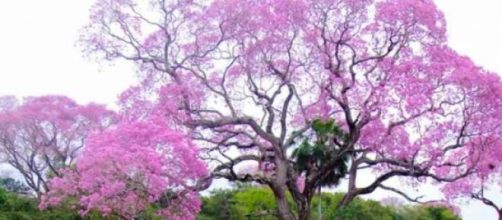Therehas been much ink spilt about mindfulness in the last few years, and I am asguilty as anyone for this, since I have written about mindfulness several times,already, on Blasting News, most recently: "Theexistential critique of mindfulness."
However, this time, I am going to explore one of the corepractices of mindfulness, since I recently encountered an occasion wheremindfulness skills should have been useful in my "real" life and work.
Mindfulness is, as its advocates say, a "practice." It is a "tool," or a "way of life." In other words, mindfulness involves practising mindfulnesstools to develop a mindful way of life.
OK, that is fairly meaningless withoutan example, so let's look at an example: mindfulness involves practising acertain aspect of mindfulness, such as mindfulness breathing; by developingthis "tool," those practised in mindfulness skills can use them in everydaylife to be able to live a better life, by being more mindful.
In a moment, I will bring this discussion back to my ownexperience of how mindfulness shouldhave naturally incorporated itself into my "real work" life. However, first, itis necessary to discuss how mindfulness relates to our ability to experiencenature. After breathing, a range of other commonplace and natural activitiesare used to develop mindfulness skills. These involve things like walking –going on a mindful walk – or takingnotice of your surroundings.
Therefore, an obvious way of practisingmindfulness is to slowly walk around your back garden, and notice all thethings that are there in detail and mindfully and uncritically examine what isthere in nature.
Recently, for work, I had to do precisely this: I had to write anapprox. 300 word blog-style article on how I had experienced nature. As thiswas for an American company, I also had some fun with it, and part of it was fictitious.I had fun pretending to be the all-American dude, talking about "garbage in thetrash can." However, that is an aside. The point is that this task basicallyinstructed me to practice mindfulness tools/mindfulness skills. I encountered anepiphany, but not a pro-mindfulness epiphany.
It became obvious why mindfulnessis simply unnatural and quite possibly impossible.
Mindfulnessasks us to simply experience something, and accept it. I quickly found that thisis unnatural and probably impossible. I noticed some pink flowers because theystood out since they were the sole point of colour amidst the green of thegrass and the brown of the soil and earth. However, my first thought was: "Idon't know what plant, or flower, that is. I don't know its name." I becameaware that I was thinking. I was no longer experiencing nature, per se.Instead, I was thinking about it and analysing it. I was trying to understandthe plant in human terms by categorising it with a name.
This made me aware ofthe difficulty of actually encountering nature.
It seemed to me that there isalways a disconnect between nature, itself, and between the humaninterpretation through we which we understand and experience nature. Thismoment showed me why mindfulness is a strange idea. It was some kind ofepiphany, albeit a negative one.

